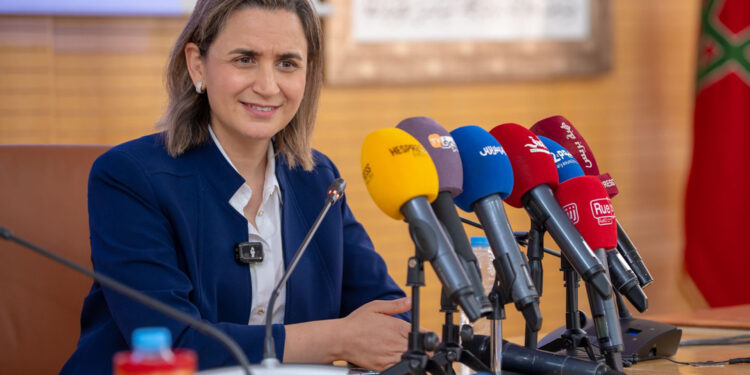9/27/2024–|Last updated: 9/27/202406:22 PM (Mecca time)
Morocco announced the launch of the national strategy for digital transformation, with a budget of $1.1 billion. This came according to a speech by the Moroccan Minister of Digital Transition, Ghaitha Mazour, during the ceremony announcing this strategy in Rabat.
She pointed out that “this strategy aims to digitize services in public administrations to facilitate the task (transactions) for citizens and companies, in addition to meeting their needs in this field.”
According to the Minister, it also aims to “reduce the duration of obtaining public services and digitize the national economy in order to raise productivity.”
She added that this strategy aims to make Morocco a digital pole to accelerate the social and economic development of the Kingdom, and to digitize public services, in order to move Morocco from rank 113 to rank 50 globally according to the e-Government Development Index and facilitate access to public services.
In statements to reporters, Mazur said, “This strategy aims to develop the digital economy in the country to provide 240,000 job opportunities for young people in various parts of the country, in addition to training 140,000 young people in the field of digitization annually until 2030.”
For his part, Moroccan Prime Minister Aziz Akhannouch said, “The budget for this strategy amounts to 11 billion dirhams ($1.1 billion) between 2024 and 2026.” He added that the digital sector “provides a lot of job opportunities.”
He stressed that this strategy constituted the focus of extensive consultations, as the government worked to involve the main actors in the field of digitization, to study its implications, whether from public administrations, professional associations, training institutions, or from the private sector and civil society.
For his part, the President of the General Confederation of Moroccan Enterprises, Chakib Laalaj, said, “The national strategy for Digital Morocco 2030 is clear and comprehensive, and we have the responsibility to make its implementation successful, stressing the determination of the private sector, represented by the General Confederation of Moroccan Enterprises, to play its full role in this process, not Especially by encouraging companies to adopt new technologies, and also using the services of emerging companies.”
Mr. Laalaj stressed that the main goal is to motivate startups to enhance their access to global markets through a strategic focus on “digital export,” calling for the need to develop the mindset of entrepreneurs and adopt and enhance open innovation approaches, industrial laboratories, and prototyping centers.



